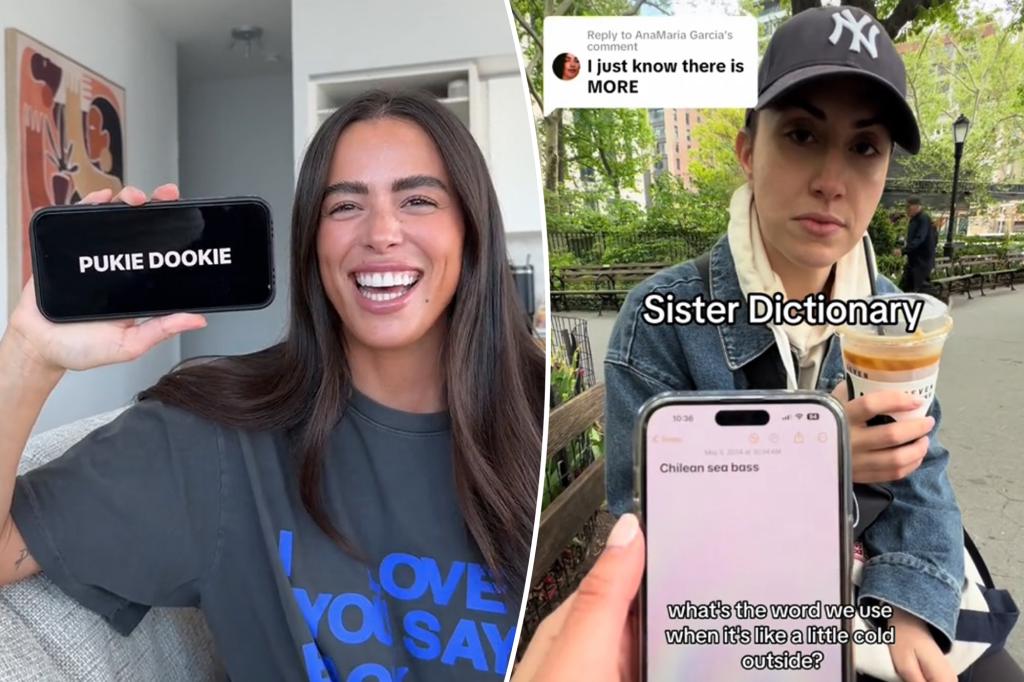Gen Z individuals are creating their own secret languages and colloquialisms, making it difficult for others to understand them. This trend, popularized on TikTok, involves couples, friends, and siblings quizzing each other on their unique vocabulary, known as their “friend dictionary”. From terms like “nosetta” for someone who is being nosey, to describing a terrible meal as tasting like “dog chow,” these phrases have become integrated into the everyday lives of Gen Z individuals, almost like a secret code.
Creators like Chelsea Lefkowitz have shared their sister dictionary online, highlighting the unique ways that siblings and close friends communicate. Using phrases like “I’m in excruciating pain au chocolat” to describe post-indulgence bloating, or “projectile committed” when plans can’t be changed, these colloquialisms help strengthen the bond between those who use them. Nicole Holliday, a linguistics professor, explains that developing shorthand and references to past events serves to establish closeness and community within a group, with the shared inside jokes creating a sense of inclusion.
Groups of friends are creating their own secret languages as well, using phrases like “obsessica Simpson” to convey extreme love for something, or “depressica Simpson” when feeling down. Couples like Jedson Tavernier and Jade Smith have their own unique vocabulary, such as announcing “got a parcel” instead of saying they received a package. These shared languages help to humanize individuals, showing that everyone has their own unique way of communicating and connecting with others.
According to experts, the evolving language among Gen Z individuals is indicative of strong friendships and close-knit relationships. Viewers on TikTok often admire these creators for their tight bonds, feeling like they are part of a secret club when they use their exclusive vocabulary. This shared language, dubbed a BFF dictionary, is a natural evolution that can develop over time and is often based on inside jokes and shared experiences. These terms become a way to encapsulate humorous mishaps or special moments, integrating them into the language of the group.
The unique language created by Gen Z individuals is a way for them to express their closeness and camaraderie with others. Using the evolving vocabulary as a means of strengthening bonds and showcasing their unique identities, this trend has become a defining characteristic of this generation. By developing their own secret codes and phrases, they are able to communicate in a way that is exclusive to their group, creating a sense of belonging and unity. The shared language they create becomes a reflection of the strong relationships they have with those around them, serving as a way to celebrate and honor their friendships.


